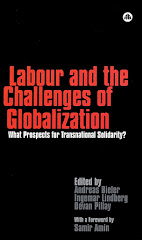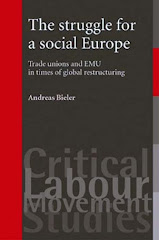After
five years of imposed austerity, the Greek economy is on its knees. GDP has
declined by 25 per cent, unemployment is at 26 per cent with youth unemployment
above 50 per cent. And yet, all the EU has got on offer for Greece is yet more
austerity in exchange for a third bailout agreement (BBC, 13 July 2015). Pension
reform will be part of the deal agreed at the marathon meeting of eurozone
leaders on July 12, as is further privatisation and labour market
liberalisation. EU agents will be given oversight of Greek government spending,
including a new independent fund that will monetise €50bn in state assets to
repay debts.
There is no sign
of European solidarity in this deal. It is a punishment handed down to Greece
for daring to say no to austerity. The EU was established on the principles of
cooperation and mutual support – and many are now wondering what has happened
to those aspirations. But solidarity fell by the wayside some time ago in
Europe. This is just the most recent example of how European integration today
is about profit maximisation for capital – not about cooperation between
European people.













